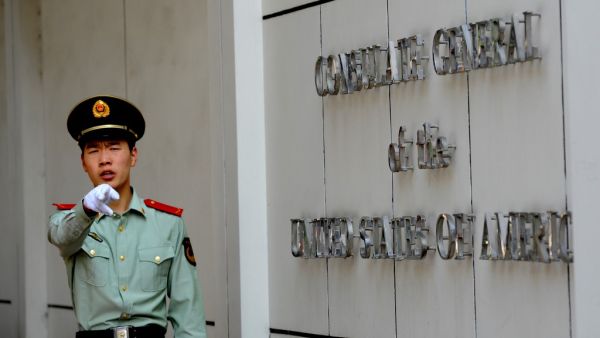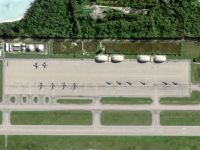China on Friday ordered the United States to close its consulate in southwestern Chengdu in retaliation against Washington for ordering Beijing to close its Houston office.
In a statement, the Chinese Ministry of Foreign Affairs said it has notified the U.S. Embassy in China that its license to operate the Chengdu U.S. consulate general has been revoked and that it is to stop all business and activities there.
"The measure by China is a legitimate and necessary response to the unjustified act by the U.S.," the statement read. "The current situation in China-U.S. relations is not what China desires to see, and the U.S. is responsible for all this."
The ministry said it urges the United States to "immediately retract its wrong decision and create necessary conditions for bringing the bilateral relationship back on track."
UPI has contacted the U.S. Consulate General Chengdu for comment.
The move by Beijing follows the United States earlier this week ordering China's consulate in Houston to close by Friday, accusing it of being used for spying and to steal U.S. intellectual property.
U.S. Secretary of State Mike Pompeo on Thursday said in a speech attacking China that they ordered Beijing to close its Houston consulate "because it was a hub of spying and intellectual property theft."
China on Thursday denied the accusations as "vicious slanders," stating all of its missions "have been promoting bilateral friendship and cooperation."
"The U.S. demand of the closure of China's consulate general in Houston is in serious violation of international law" and "severely damages bilateral relations, a move that undercuts the bond of friendship between Chinese and American people," Foreign Ministry spokesman Wang Wenbin said during a regular press conference.
The consulate orders come amid fracturing relations between the United States and China.
The Trump administration has taken a harder line stance against the Xi regime, passing legislation to punish it over its human rights record in Hong Kong and Xinjiang province where it is accused of detaining some 1 million Uighur Muslims. It has also labeled several Chinese state media in the United States as foreign missions and rejected China's claims to the South China Sea as unlawful.
Beijing has responded to these moves by expelling U.S. journalists from its borders and imposing visa restrictions against specific U.S. politicians who have voiced anger over its treatment of Hong Kong protesters and its Muslim minority citizens. And it has repeatedly demanded the United States to stop interfering with its internal business.
On Thursday, Pompeo said that if they want the 21st century to be one of freedom then they can no longer continue "blind engagement with China."
"We, the freedom-loving nations of the world, must induce China to change," he said. "We must induce China to change in more creative and assertive ways because Beijing's actions threaten our people and our prosperity."
Earlier Thursday, the Federal Bureau of Investigation announced it has charged four Chinese researchers with visa fraud for not revealing their status as members of China's military, the People's Liberation Army, when they applied for entry to the United States.
Three of those charged have been arrested, but agents believe the fourth, Juan Tang, a biology researcher who was working at the University of California, Davis, is being harbored by China's San Francisco Consulate.
The U.S. Consulate General in Chengdu was established in 1985 and has been overseen by U.S. Consul General Jim Mullinax since August 2017, according to its website.
This article has been adapted from its original source.








